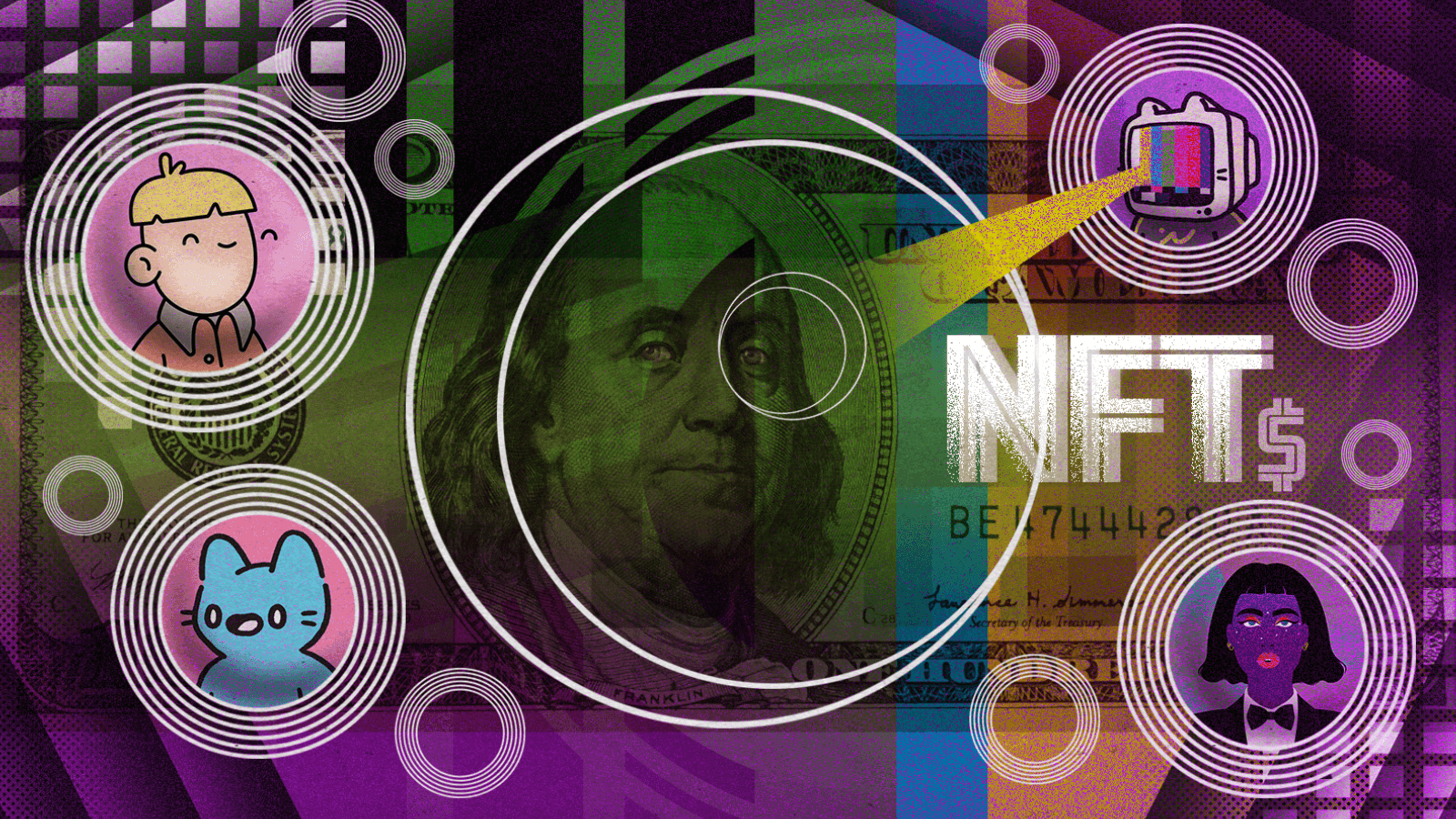Permissionless Web3 and NFT Trends, Takeaways
GameFi promise must overcome “scared” traditional game developers, Web3 brands and creators need better communications tools, and control over data a key theme, industry execs say

Blockworks Exclusive Art by Axel Rangel
- Mainstream adoption of GameFi has significant hurdles to surmount
- Users need better information and education around Web3 promise and pitfalls
The three-day Permissionless conference, co-hosted by Blockworks in Palm Beach, Florida, brought together developers, business leaders, policymakers and builders within the crypto and blockchain community. Alongside panels about institutional investing, liquid staking and stablecoins, were discussions about NFTs, the Metaverse and gaming. Here are some of the highlights.
The promise of GameFi
The GameFi space, referring to blockchain games that offer economic incentives to players such as play-to-earn, is a nascent environment where the goal is to attract new crypto users via gaming. According to Angela Dalton, chief executive officer and founder of Signum Growth Capital, most traditional AAA game publishers are “too scared” to get into GameFi. Those publishers that have experimented with NFTs in their existing games, like Ubisoft, have received considerable backlash from hardcore gamers.
“I think that the traditional game publishers are analogous to CBS, Viacom, Disney when Netflix came along, and they’re just holding on to their IP, and scared to enter this space,” Dalton told Blockworks.
Ken Timsit, the managing director of the layer-1 blockchain protocol Cronos, echoed the sentiment. “If you take a group of random people, and you try to give them a blockchain, or force them to eat blockchain, and they’re not hungry, it’s going to be tricky,” Timset told Blockworks.
In light of the rug pulls and scams that gamers have been subjected to, some backlash and skepticism is warranted. However, Mirko Basil Doelger, the chief executive officer and founder of UniX Gaming, pointed out that the current gameplay and infrastructure builders are “pioneers” and it is up to them to set the pace.
“How fast we make progress. How smooth is the entrance? How much do we attract our new audience?”
Web3 brands and their communities’ needs
Since launching the beta version of its NFT marketplace in April, Coinbase has revealed its vision to be a social entity marketplace. According to Coinbase’s chief marketing officer Kate Rouch, this means combining elements of a transaction platform like OpenSea or Rarible with the social aspects of a social network like Twitter or Discord.
She added that Web3 creators are in need of better tools to communicate with and market to their audiences and communities, and Coinbase hopes to fill that need.
Coinbase was one of the presenting sponsors of Permissionless and celebrated its 10-year anniversary as a company this week.
Similarly, Jeff Carvalho, co-founder of the Highsnobiety brand and the Web3 consultancy Burrata, agreed that “as much as we chase floor prices” when it comes to NFTs, better marketing campaign experiences are necessary to onboard more consumers into the Web3 space. Especially as fashion, music and art culture converge, “keeping that community engaged is evermore difficult,” he added.
“There have to be better rails or on-ramps to get the average consumer to come in here where they’re not worrying about a smart contract or getting exploited by it,” said Carvalho.
Sovereignty over our digital identity
Another theme that came up throughout the conference is the idea of having true ownership over our social graphs and control over our digital assets. According to Evin McMullen, a ConsenSys alum and blockchain advisor, “consent is really important when it comes to our autonomy, and only an enthusiastic yes means yes to interacting with my data.”
Ethereum co-founder Vitalik Buterin and others have argued that so-called “souldbound tokens” (SBTs) — NFTs that cannot be transferred once received, and are held in a wallet forever — are essential to Ethereum’s future because they “establish provenance and reputation.”
McMullen disagreed. “The autonomy of these [private wallet keys] comes from our ability to separate ourselves from unwanted assets,” McMullen said, referring to SBTs.
In addition to autonomy and consent being central to the ethos of blockchain, so are privacy and security important to crypto wallet users. Ledger’s vice president of product Charles Hamel said on the Permissionless stage that Web3 is all about “decentralization and user choice” and that clear signing for NFTs and DeFi will be essential for wallet safety.
People want more than just cold storage of bitcoin and crypto from their hardware, explained Hamel, adding that there is a growing need for users to know exactly what they are signing when executing on-chain NFT transactions.
He presented the crypto hardware wallet manufacturer’s own browser extension, Ledger Connect, which enables users to connect their hardware wallets to Web3 applications such as Ethereum and Solana.
Get the news in your inbox. Explore Blockworks newsletters:
- The Breakdown: Decoding crypto and the markets. Daily.
- 0xResearch: Alpha in your inbox. Think like an analyst.






